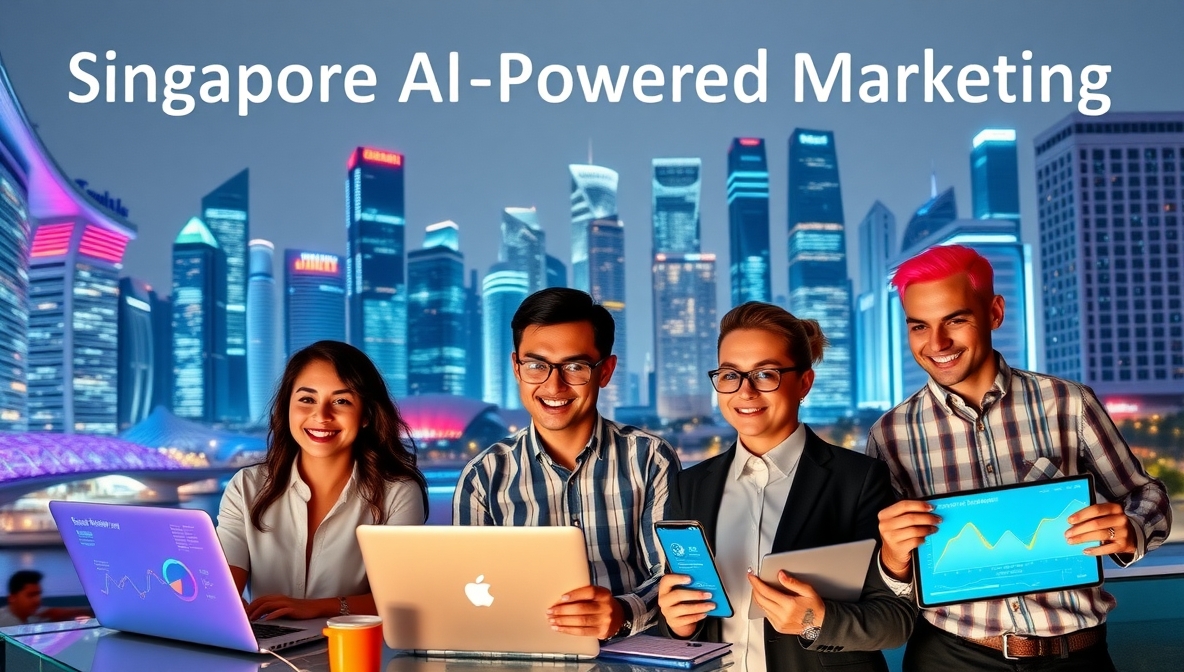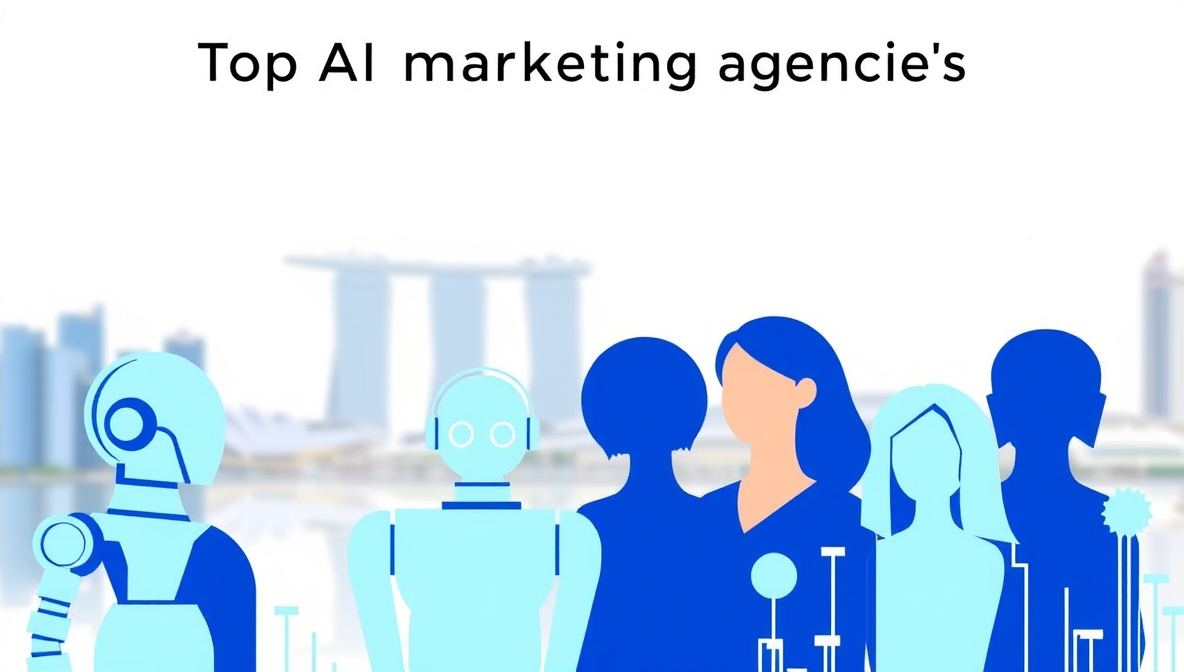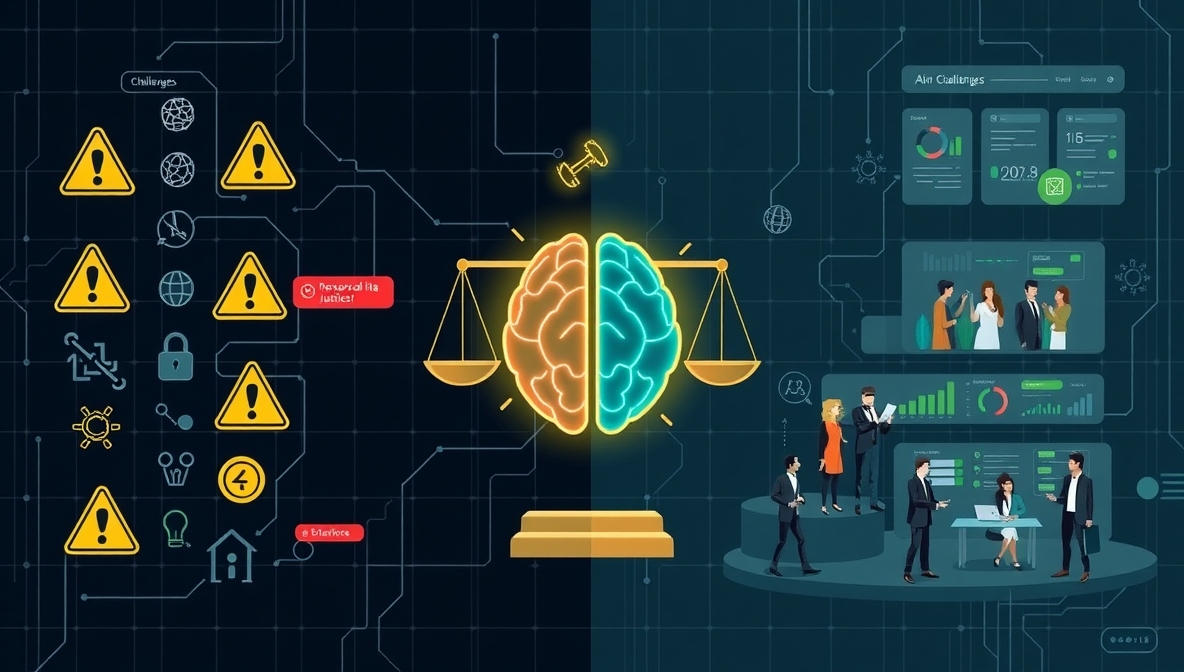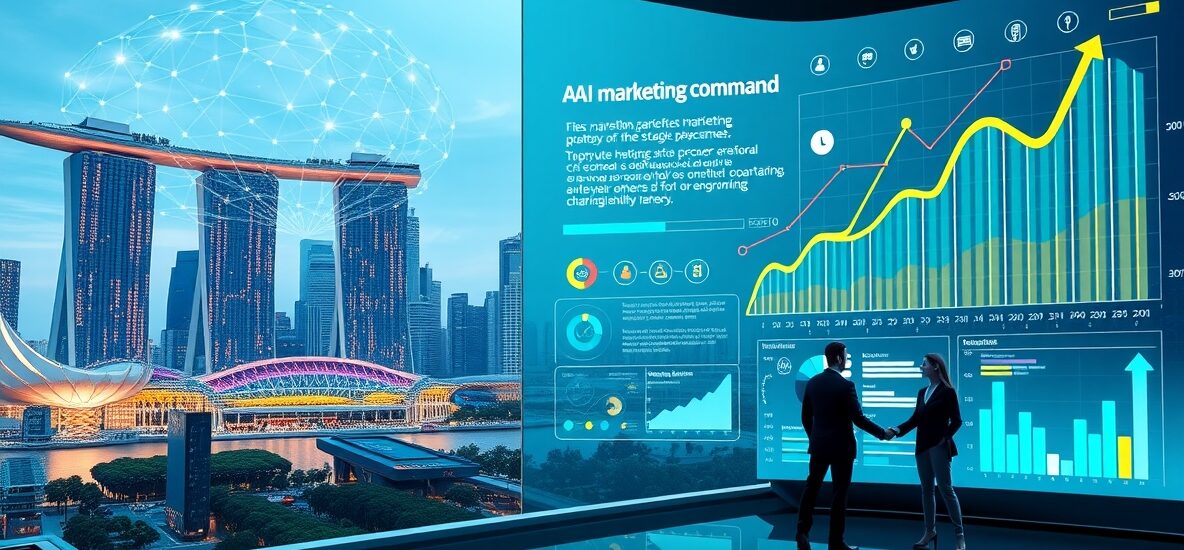The Rise of AI in Marketing
Marketing has always been about understanding people—what they want, how they behave, and when they’re ready to make a decision. But in today’s hyper-connected world, human instinct isn’t enough. Enter artificial intelligence, the silent architect shaping how brands interact with consumers. Across the globe, AI is driving smarter campaigns, sharper insights, and faster results. Yet, one market stands out for its rapid adoption and bold experimentation: Singapore.
Singapore has emerged as a dynamic hub where technology meets commerce, making it fertile ground for innovation in AI Marketing. With a highly digital population and a government that pushes forward-thinking policies, the city-state is setting the standard for data-driven advertising in Asia. Agencies here aren’t just running ads; they’re turning torrents of raw data into actionable strategies that hit home with precision.
The shift is clear. Traditional marketing relied on gut feelings, creativity, and hindsight analytics. Today, brands want more—they want predictions, personalization, and proof. AI makes this possible by processing massive datasets in seconds, uncovering consumer behavior patterns invisible to the human eye. In Singapore, agencies are proving that when you put data into the right hands, action follows with extraordinary results.
This isn’t just about better campaigns; it’s about a fundamental transformation of the marketing playbook. As we explore how Singapore’s agencies are using AI to redefine strategy, execution, and results, one thing becomes obvious: the future of marketing isn’t coming—it’s already here, and it’s powered by artificial intelligence.

Why Singapore is Leading in AI-Powered Marketing
Why Singapore? The answer lies at the intersection of policy, talent, and ambition. The city-state is uniquely positioned to be a leader in AI-powered marketing, thanks to a government that prioritizes digital innovation and businesses that embrace change. Unlike other markets where adoption is slow, Singapore has built an ecosystem where experimentation is encouraged, and results are demanded.
One of Singapore’s biggest advantages is its forward-thinking regulatory environment. Initiatives like the Smart Nation program and national AI strategies make the city fertile ground for technology-driven industries. These policies don’t just encourage adoption—they create a runway where companies can scale new solutions quickly and confidently.
But policies alone don’t drive innovation. Singapore’s multicultural and digitally savvy population plays a massive role. With some of the highest smartphone penetration rates in the world, consumers here leave behind a constant trail of data. Agencies can harness this information to refine targeting, predict trends, and deliver experiences that feel tailor-made.
Equally important is Singapore’s role as a regional hub. Global brands use the city as a testing ground, leveraging its mix of local insights and global outlook. This creates a hotbed for AI agencies to experiment with solutions that can later scale across Southeast Asia.
At its core, Singapore is bold enough to bet on the future. The willingness to embrace AI in marketing reflects not just the pursuit of efficiency but the pursuit of leadership in an increasingly competitive digital economy.
What AI Marketing Agencies Really Do
At first glance, the term “AI marketing agency” might sound like a buzzword. But in reality, these agencies are reshaping the foundation of modern advertising. Their work goes beyond running ads—it’s about building systems that make every marketing dollar smarter and every message sharper.
So, what do they actually do? First, they leverage predictive analytics. Instead of simply reacting to consumer behavior, agencies use AI to anticipate what customers will want next. This foresight allows brands to launch campaigns that meet needs before they’re even expressed.
Second, these agencies deliver personalization at scale. Traditional marketers could customize a few customer journeys, but AI Marketing agencies can tailor experiences for thousands, even millions, of individuals simultaneously. Every click, search, or scroll becomes data that fuels hyper-personalized messages.
Third, automation changes the game. From A/B testing to programmatic ad buying, agencies remove the manual guesswork and let algorithms continuously optimize. This doesn’t just improve performance—it frees up creative teams to focus on what humans do best: storytelling and strategy.
Finally, AI agencies act as interpreters of complexity. Raw data is overwhelming, but these firms translate it into insights executives can use to make bold decisions. They transform noise into clarity, helping brands understand not just who their customers are, but why they act the way they do.
In short, AI marketing agencies aren’t replacing human marketers; they’re supercharging them. By combining machine precision with human creativity, they’re setting a new standard for how campaigns are built, measured, and scaled.

Key Players: Top AI Marketing Agencies in Singapore
Singapore is home to a growing number of agencies at the cutting edge of AI-driven marketing. These aren’t your run-of-the-mill ad firms—they’re specialized outfits that marry data science with brand storytelling. Each brings something unique to the table, but together they represent the city’s growing influence in digital transformation.
One standout is iSmart Communications, a leader in AI Marketing solutions across Singapore and Asia. Known for turning complex datasets into precise strategies, iSmart helps brands cut through the clutter with campaigns that feel less like ads and more like experiences. Their ability to merge analytics with creativity positions them as a go-to partner for forward-thinking businesses.
Other agencies, both global and local, are making waves by zeroing in on niche specialties. Some excel at conversational AI, building chatbots that not only answer questions but also guide customers toward purchases. Others focus on predictive lead scoring, helping sales teams focus their energy on prospects with the highest potential.
What unites these players is their philosophy: marketing shouldn’t be static; it should be adaptive. These agencies embrace AI not as a tool, but as a mindset—one that thrives on experimentation and continuous optimization.
Singapore’s agency scene is still evolving, but its impact is undeniable. Brands that partner with these firms are gaining a competitive edge, learning how to harness AI not just to keep up with consumer demands, but to stay one step ahead.

From Data to Insights: How AI Transforms Consumer Understanding
Data has always been the lifeblood of marketing, but without the right tools, it’s just noise. The magic of AI lies in its ability to sift through mountains of information and uncover the patterns humans can’t see. This is where Singapore’s AI agencies excel—turning raw data into actionable insights that transform consumer understanding.
For instance, AI can analyze buying habits across thousands of transactions to reveal when a customer is most likely to make a purchase. It can identify subtle behaviors—like hesitating on a checkout page—that signal hesitation, prompting a timely discount or nudge. These aren’t guesses; they’re data-backed moves that increase conversions.
Another game-changer is sentiment analysis. By scanning social media posts, reviews, and even customer service chats, AI picks up on emotional cues. Agencies can tell whether audiences feel excitement, frustration, or indifference, and adjust messaging on the fly.
The power of insights doesn’t stop at the customer level. AI also helps brands forecast market trends, track competitor behavior, and optimize pricing strategies. For agencies, it’s not just about selling products—it’s about equipping brands with the intelligence to make smarter business decisions.
In Singapore, where competition is fierce and consumers are demanding, this kind of precision is invaluable. The shift from raw data to strategic insight is what sets AI agencies apart. They don’t just tell brands what’s happening; they show them why it matters—and what to do about it.

Case Studies: AI Marketing in Action
Theory is useful, but results speak louder. Singaporean agencies have been applying AI to campaigns with striking success, proving that this isn’t just hype—it’s impact in motion.
Take the retail sector, for example. A local fashion brand partnered with an AI agency to analyze customer browsing patterns. By understanding what items were frequently viewed together, the brand was able to create smarter product bundles. The result? A 20% increase in average order value within weeks.
In another case, a financial services company used predictive analytics to refine its lead scoring. Instead of chasing every potential customer, it focused on the top 15% most likely to convert. Campaign efficiency soared, cutting costs while boosting conversion rates.
Even in the competitive F&B industry, AI has shown its worth. A restaurant chain leveraged AI-driven sentiment analysis to understand customer feedback in real time. When negative comments started trending about slow service, management was alerted immediately, allowing them to fix the issue before it spiraled.
These case studies illustrate a bigger truth: AI isn’t just about data—it’s about agility. The ability to act quickly, pivot strategies, and optimize campaigns on the fly is a massive advantage. Singapore’s AI agencies are proving that when you combine local market knowledge with cutting-edge tools, the results can be transformative.

Challenges and Ethical Considerations
Of course, AI isn’t a silver bullet. For all its potential, it comes with challenges and ethical dilemmas that can’t be ignored. In Singapore, where data protection is taken seriously, agencies must balance innovation with responsibility.
One major concern is privacy. AI thrives on data, but collecting, storing, and analyzing personal information raises questions about consent and security. Agencies need to be transparent about how they use data and ensure compliance with regulations like Singapore’s PDPA (Personal Data Protection Act).
Bias is another challenge. Algorithms are only as good as the data fed into them, and if that data reflects human biases, the outcomes will too. This creates risks in targeting, personalization, and even customer service. Ethical AI means constantly auditing systems to ensure fairness and inclusivity.
Then there’s the question of human creativity. Some fear that automation will replace the art of marketing. But in reality, AI works best when paired with human intuition. The challenge for agencies is finding the right balance between machine efficiency and human storytelling.
The gritty truth is this: AI marketing requires more than technical expertise—it requires moral responsibility. Agencies in Singapore are aware of this, and those that succeed will be the ones who not only deliver results but also build trust.
Conclusion: The Future of AI Marketing in Singapore
As we step back and look at the landscape, one truth emerges: Singapore isn’t just participating in the future of marketing—it’s shaping it. From data-driven insights to predictive campaigns, AI is changing the way brands connect with people, and Singapore’s agencies are leading the charge.
The journey from data to action is no longer optional; it’s the new standard. Agencies that harness AI are helping brands become more agile, more customer-centric, and more effective than ever before. They’re showing that marketing doesn’t have to be guesswork—it can be science, strategy, and art combined.
But the story doesn’t end here. As technology evolves, so will the tools and methods. The real winners will be the businesses willing to adapt, to partner with AI-driven agencies, and to embrace a future where precision meets creativity.
In Singapore, that future is already unfolding. And for brands ready to take the leap, the opportunities are limitless. AI isn’t just marketing’s next big thing—it’s the engine driving marketing’s new era.





